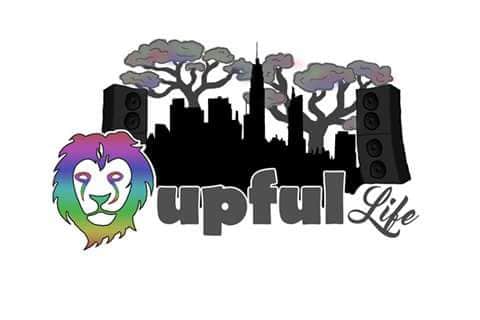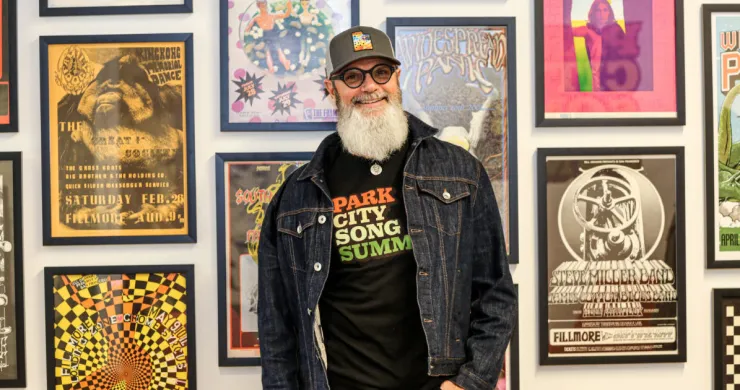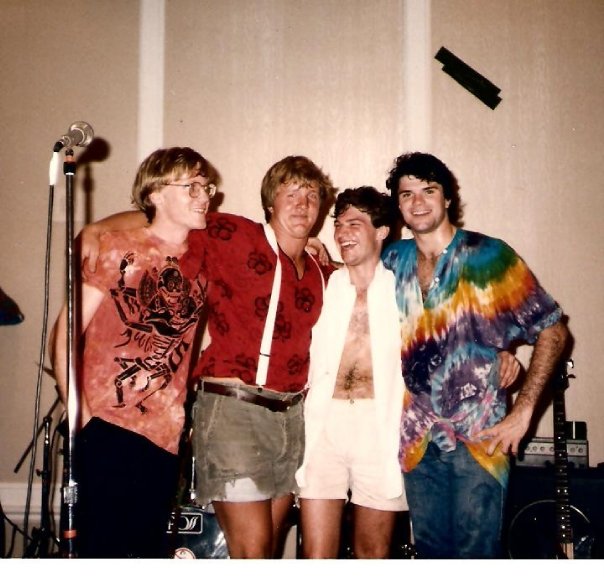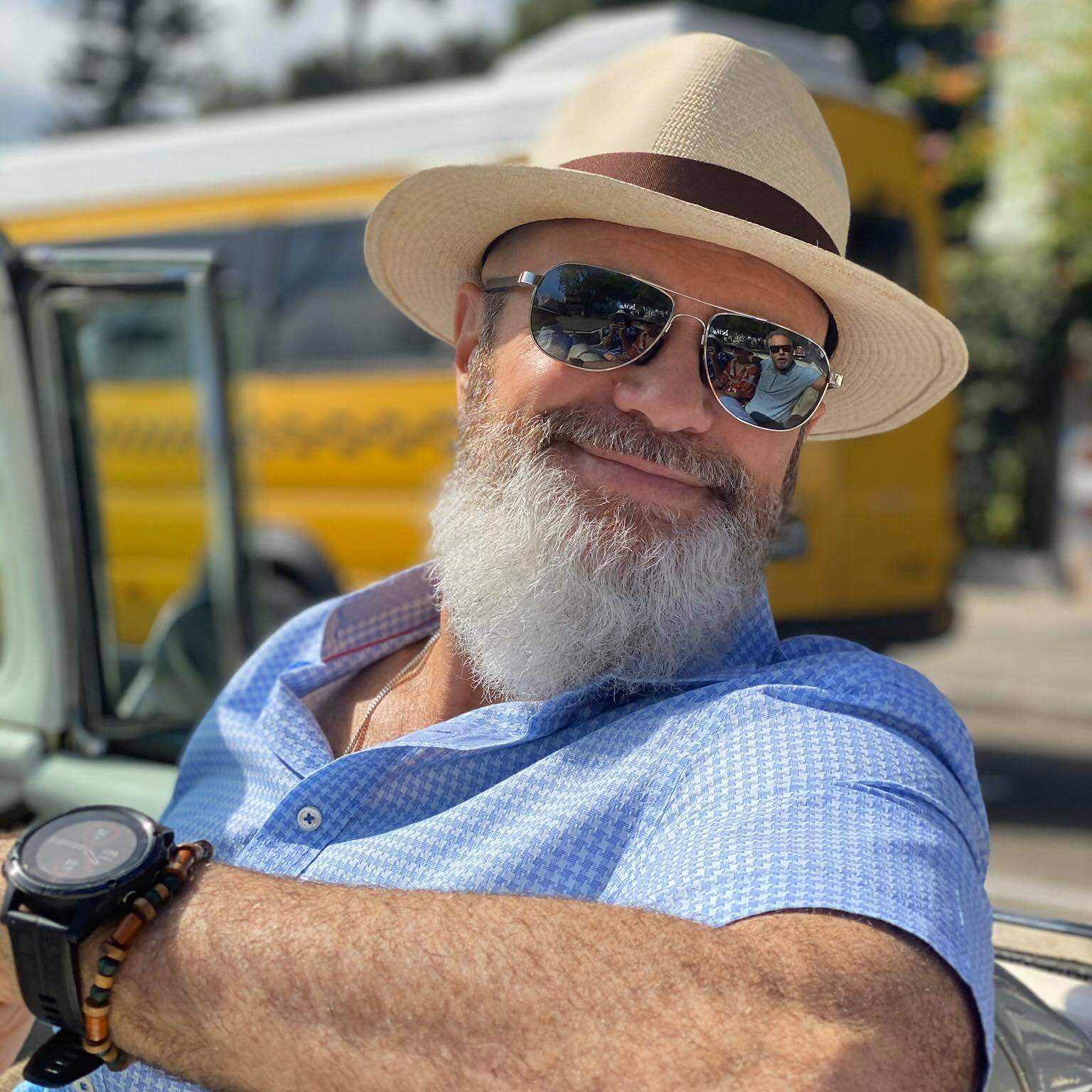Park City Song Summit’s Ben Anderson Aims To Help Musicians Through The Myth & Power Of Song [B.Getz on L4LM]
Photo: Blake Peterson via Park City Song Summit – Ben Anderson
Ben Anderson is a unique human being with a heart of gold. The former trial lawyer is a lifelong musician and the founder of Park City Song Summit, a unicorn mingling of intimate workshops, live music performances, and “songwriter rounds.” The gathering will take place from September 7th through September 10th in Park City, UT featuring the likes of Jason Isbell, Rising Appalachia, Mavis Staples, Father John Misty, Andrew Bird, John Craigie, Celisse, Anders Osborne, and many more [get tickets].
The embryonic roots of PCSS can be traced back to Anderson’s 2019 Park City Songwriter Festival. After its pandemic cancellation in 2020, Anderson linked up with Jay Sweet, executive director of the Newport Festivals Foundation. Together, they combined their visions into what would become Park City Song Summit. A planned 2021 rollout was unfortunately canceled in the wake of renewed concerns about COVID-19. Many of the artists slated for last year’s event chose to sign on for 2022, and this year’s collection of movers and shakers is sure to deliver some once-in-a-lifetime moments for those lucky enough to attend.
Anderson’s intentions to examine the myth and power of song are clear even in the event’s name, which eschews the word “festival” for the more appropriate “summit.” The concepts of creativity, inclusivity, and community lie at the core of what transpires here. A healthy awareness for addiction/recovery, trauma, and mental health treatment also help define the event, with partners like Backline and The Phoenix underscoring its mission to take better care of people in the music industry, from the stage to the rage.
Park City Song Summit Invitation Video ft. Ben Anderson
Live For Live Music’s B.Getz tracked down the vibrant visionary behind Park City Song Summit for a discussion about Ben’s spiritualized musical journey, the joys of recovery, his intentions to provide alternative lifestyle options for musicians, and what he’s excited to produce at Song Summit 2022.
Below are some highlights from that insightful conversation, edited for length and clarity.
On his nascent memories discovering music as a youth:
“I grew up in a small town outside of Nashville, basically a farm town that had churches, factories, and farms. Banks and fast food restaurants, but not a whole lot of red lights. My dad was a gospel recording artist so I started singing as a youngster on stage at probably the age of six in front of the audiences in churches and things like that. So, I sang in choirs and found my love of harmony, my love of music, and really my love of connection in that setting, with the congregation. That was really what hit me deep in my soul: people coming together with this shared consciousness, from all different walks of life or all different places in their lives. When the music cranked up, they came together for something bigger than themselves.”
On discovering his earliest influences and how the Grateful Dead experience changed and shaped his life and music:
“In the old days I was huge on Lynyrd Skynyrd, Allman Brothers, Pink Floyd, Neil Young, really all kinds of different music, but typically in the rock and roll realm. I was in one band from ‘76 all the way through high school, and in ‘82 I started a band that was more Dead oriented, in college at Vanderbilt. The Grateful Dead and the psychedelic experience, that shared… sort of religious experience, if you will, that was the Grateful Dead. That was like, this interesting sort of rekindling my flame for what it could be like to be in both the audience and onstage, in this shared collective consciousness for something bigger than ourselves. Inside that moment, it felt like anything was possible.”
“When I was growing up, going to a Foreigner concert or Neil Young show, there was nothing that prepared me for the circus once I got on the bus with the Grateful Dead, right? And so, I loved playing their music, I loved seeing their music, and I loved what could happen in the moment, like the potential of music to actually move the human experience forward.”
The music that I would play with my band, Aiko, was mainly Grateful Dead-oriented. To experience that was a very small microcosm of what it must have been like for Jerry [Garcia] and the boys to be on stage… and that was soul food for me: to play it and listen to it for countless hours, hundreds of Dead shows, Jerry Garcia Band, or Bobby and the Midnites, or whatever side project that they may have had going on at the time. Plus, all the collaborations, when they would invite Branford Marsalis or Clarence Clemons, Carlos Santana or Stevie Wynwood, just all of the different musicians who loved playing with them. And that was like, wow! It felt like the Dead on steroids when you would see these interactions. This great band with these other great musicians. The connection and collaboration.”
[Photo via Ben Anderson: Ben Anderson (right) with Aiko]
On how music still fills his life with abundance and gives him purpose:
“It really comes from my love of playing music with others. Just being involved with music and musicians in general. I have a small record label in New Orleans where I work with Anders Osborne, producing albums there. I have a recording studio at my home where bands come and record. I have my own band for 38 years now. A lot of these building blocks are now things that I have utilized for the Song Summit.”
On how his recovery influenced his vision for Song Summit:
“I think the whole sex, drugs, and rock and roll thing is bullshit. It’s a myth, and it’s still putting a lot of our sisters and brothers in the ground over the years. Some of the best. Neil Young once said, ‘Some of the greatest creative music and art is in the dirt, and we’ll never hear it.’ We’ll never know what it was because of trauma, mental health, addiction, et cetera. Right? The needle and the damage done. So many artists, they were just starting to make such an impact on our lives and the canon of American music, and then they’re gone, and they’re not coming back. So if in some small way I can take my recovery—I celebrated 15 years in recovery a few weeks ago—and share it with others… In recovery, I’m so grateful and humbled by what I’ve been able to do, as a human being, as a creative, to be a better dad, a better husband, a better friend, a better leader at my company here. Just a better global citizen. To be more mindful, tolerant and empathetic to others. I look back at how my life has changed as a result of recovery.”
“And I think, you know, if there’s in some way that I can tap into what we called the ‘Wharf Rats’ at the Grateful Dead shows… You’d see the yellow balloons, and I was always curious about that, even though I wasn’t in recovery at the time, and far from it [laughs]! I admired this organic gathering of people who were at these shows with everything in the world going around them in the psychedelic experience—you know, not judging either side of that—but the fact that they could come together and be sober, and be together, and find their own community within the community that was a safe place for them at Dead shows, I admired it. And I would sort of stand around the edges, like, ‘what’s going on with these yellow balloons?‘ Now [I] have the opportunity at my own event, that I created, [to] have yellow balloons so that artists and audiences alike will have daily recovery hangs.”
“It’s a very different event in that way. I am inviting artists to come be in residence in the mountains of Park City, and to bring their families. I invite all of them to stay here as many days as they want during the week, whether they’re performing or not, because I want to provide them a platform to be in the mountains, to breathe the fresh air, and to take hikes in the morning. I offer yoga and meditation. We offer psychological counseling, one-on-one mental health counseling. We have recovery hangs during the day. And we offer non-alcoholic beverages. And I have a clean room as well as a green room, for artists that don’t want to have alcohol or anything else in their green room.”
On the power and myth of song:
“To me, it is about connection, creativity and community. It is about the power and myth of song. One of the things that’s most intriguing is when you think about we, as humankind—we started off drawing on walls, and that’s maybe how we communicated. Then when the spoken word came along, we told stories, right? And then the first time that we could beat on something, we had rhythm. At some point in time, the spoken word over rhythms came along. Someone decided we’d put strings on different things, and make instruments. When you take stories and you take the spoken word, and then you take a rhythm and then you take these strings…”
“How is it these artists can call upon their muse, and they can formulate, in three-and-a-half minutes, a song that you and I will listen to for the rest of our lives? That we have to put on our radios and record players? We have to put it in our wedding playlists. We have to put in our beach playlist, or our driving playlist. Sometimes we say we want this sung at our funeral or written on our tombstone. That is the power and the myth of song. And it comes from people, human beings creating those songs, and they literally take it from the ether!”
“What Is Park City Song Summit All About?” ft. Ben Anderson
On Park City Song Summit’s focus on mental health and treating trauma in the music industry:
“As a society, we are consumers… and if all we do is take from the artists, and we just come to the shows and we take their music, then they go onto the next town, we aren’t thinking of them as humans. We’re thinking of them as just entertainers. They’re there to entertain us, right? They have lives, but they’re on the road, away from their families, away from their friends, away from their touchstones, you know, their home base. So, the whole time that they’re out on these tours and we’re buying tickets, they’ve got real lives before those 75 minutes. And after those 75 minutes, too.”
“In that process of learning more about the power and myth of song, we can find out why the artist had this passion to do a very, very tough profession, to be writing songs, recording songs, and then touring on those songs. To go town to town year after year after year. It’s a grind man. I was a trial lawyer traveling for thirty years. So that experience, of what that was like both before recovery and even after recovery, is something that I can relate to in some small way.”
“I want to bring awareness to the struggles that they may have. In providing a safe space for them to discuss those struggles or challenges, those successes, those failures, and whatnot, we in some way can be impacted, too. We can get something from that experience, something different than just hearing their music. We can hear who they are as humans.”
“Some of our artists have more challenges than others, right? Take being female in the country music industry or in any music industry. Being someone from our communities of color, someone from the LGBTQ plus community, there are extra challenges there, whether people wanna recognize it or not. You can either stick your head in the sand, or you can open your eyes. And you can realize that there are people who don’t have to worry about the same things others do. I am a white, heterosexual male, and I do not understand what it is like to be someone who’s not like me, but I understand that they have different challenges than I do. I want to hear about those at Song Summit. I want there to be a safe space where we can hear all different opinions on those types of things, and see if in some way we might understand one another better.”
“If we can understand those challenges, we can understand their passion for music. There should be times—and there will be—when people are dying laughing in these audiences. And there’ll be times when there’ll be tears in the audience. I know because I’ve seen it happen before, putting on songwriter events where they’re storytelling. The arc of the lives of these people is as important to me as the arc of their musical careers, because they’re inextricably bound, right? To know the artist is to know their music, and to know the artist better is to know their music better, and to understand them and understand their arcs. Then we can understand our own maybe a little better, too.”
[Photo via Ben Anderson – Ben Anderson]
Some final thoughts from Ben on Park City Song Summit
“This mosaic of creatives are gonna bring their talents, bring their stories, and bring the arc of where they have been, where they are and where they seek to go. There’s goodness, all over the place here, man. And that’s what we seek to bring. Just goodness to the world, to use the platform of music and creativity to do that. It’s not an easy undertaking. It’s complicated. It’s complex, there’s many facets to it, but I’ve never enjoyed anything more in my life. And, you know, music is a universal language. Music is love, and love is the answer. Love is the answer. And that’s, that’s what we seek to bring. Right? We’re gonna bring that forth. It’s very heart forward, through a lot of grit and grace. I cannot wait for the world to see what’s what we’re doing here in little old Park City.”
As told to B.Getz.
For complete details and a schedule of events during Park City Song Summit 2022 on September 7th–10th in Park City, Utah, head here.




